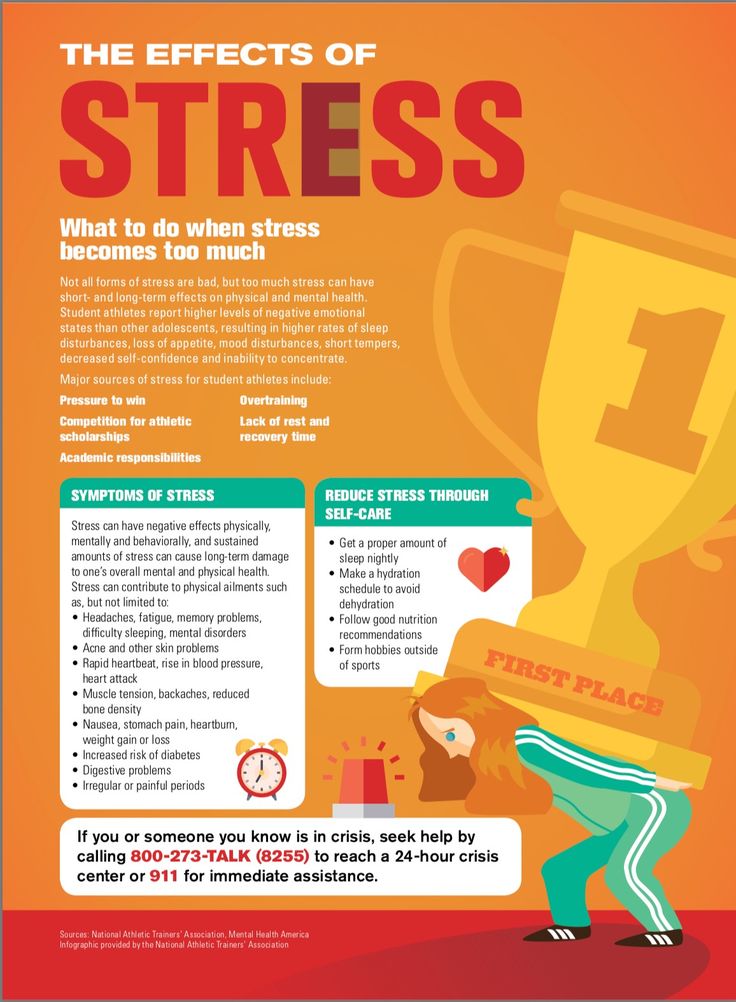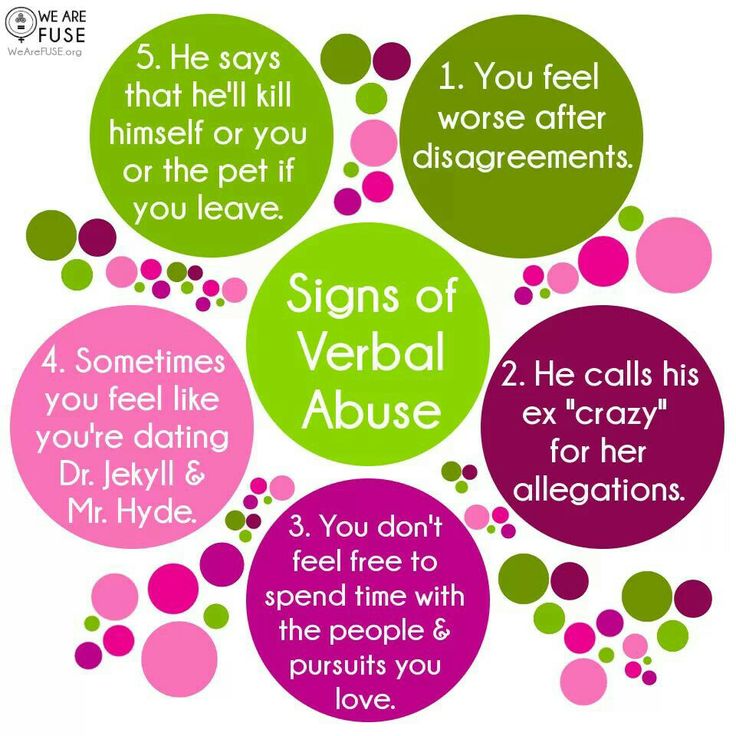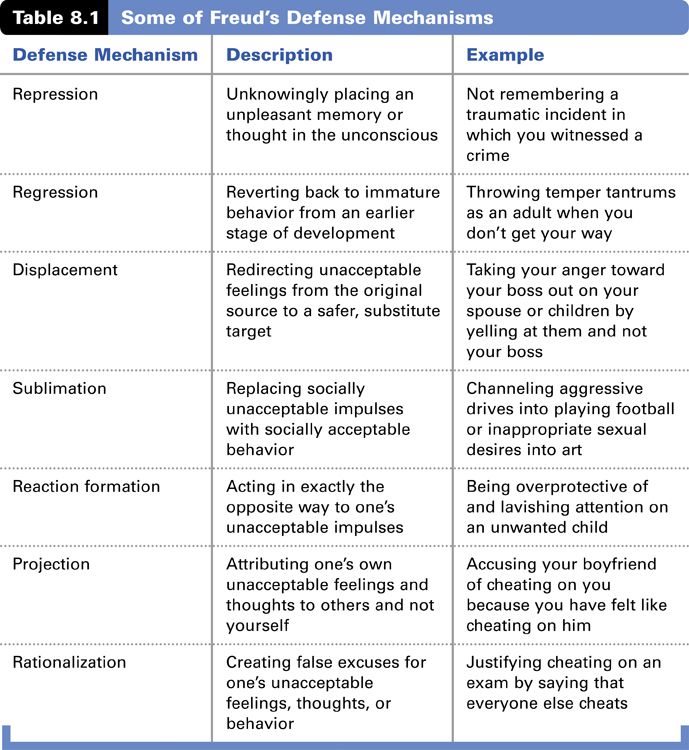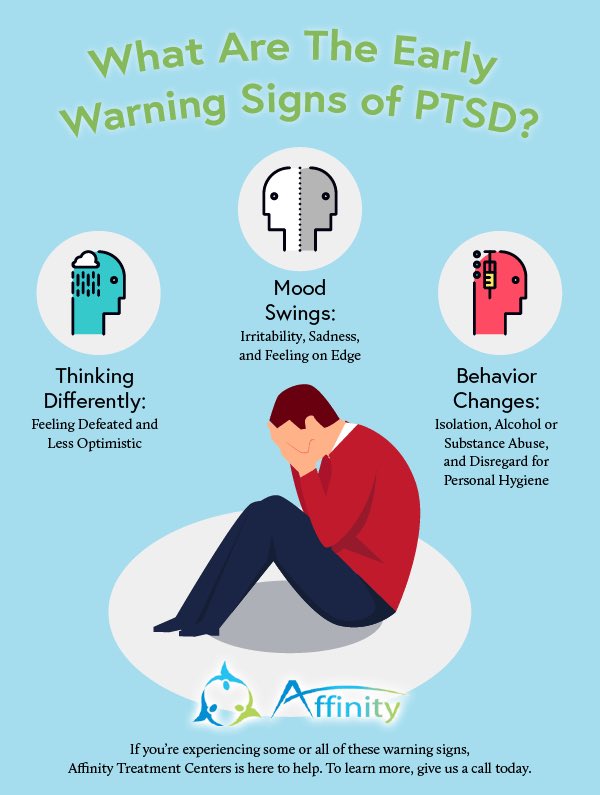Why is nothing ever good enough for me
8 reasons why nothing is ever good enough (and what to do about it)
When you feel like the world is going to collapse around you, and nothing is ever going to be good enough for anyone, it’s difficult not to blame yourself. It’s hard not to think that something is wrong with you, that no matter what you do, it won’t ever be enough.
This may sound familiar if you’ve been feeling this way for a long time. It can be hard to focus because all you can think about are your mistakes and inadequacies. Here are the reasons for thinking this way!
1) You are probably a perfectionistPerfectionism is “a desire to achieve perfection or superiority in all things.” So you not only want to be the best you can be but also want others to see that you are the best at what you do.
You expect nothing less than excellence from yourself, and when it doesn’t happen, it’s because of lack of effort on your part, lack of interest in the task—or both. If you have noticed this trait of personality in yourself, it’s probably time to change your thoughts about yourself and give some slack to people around you.
Perfectionism is often accompanied by loneliness and a general feeling of hopelessness. When you are surrounded by people but feel like no one understands you, it’s hard to see any reason for living.
Anyone with perfectionistic tendencies may feel overwhelmed. They may have plans for the future but never do anything about them because they’re too scared to fail or not be perfect.
On the other hand, there are those who are successful but find themselves unhappy and unfulfilled at the same time. Whining and complaining, finding fault in others and in all circumstances except your own—this is what perfectionism does to you.
When you can’t focus because all you can think about is the fact that everyone else is “outperforming” you, it’s hard not to feel like a failure.
2) You may be suffering from depression and a lack of energyMany people who are perfectionists and also think they aren’t good enough end up depressed. The most likely reason is that they have been thinking negative thoughts about themselves for so long, they begin to think that their world will never change, that nothing can make them feel better and more optimistic.
A lot of people in this situation begin to suffer from reduced energy—they simply don’t have any strength or desire left in them to do anything. If you are thinking this way, it might be a good idea to seek professional help from a licensed therapist.
3) You’re telling yourself you aren’t good enoughIf you are blaming yourself for thinking nothing is good enough, you have taken the first step towards making a change. Accepting compliments on your good work and achievement will help you stop the negative thinking and start seeing yourself as a success.
You are in your comfort zone, afraid of moving forward. Even though you may have dreams of being great, there are still many things you have to accomplish just to be a “regular person.”
You are afraid to leave your comfort zone and face these things. Fearful of failing, you hold back and stay in your comfort zone.
This is a mistake that often prevents people from reaching their full potential. You’re probably afraid of success, but even more so, you’re afraid of failure.
You’re probably afraid of success, but even more so, you’re afraid of failure.
If you are afraid to lose what you have now by making big changes in your life, then nothing will change because you will never do it. This is a mistake that often prevents people from achieving their goals and finding happiness in life.
If you are afraid of change, then your life will remain the same. If you want to succeed but fear failure, then wait until you fail.
If you try something and fail, it won’t kill you. You could get a job and fail at it, but who cares?
Get another job and do better! The only way to achieve your goals is to be willing to take risks on a regular basis.
You will never achieve anything if you are afraid of the possibility of failure.
Now you might be wondering how you can change and allow yourself to realize that you’re indeed good enough.
Well, my advice here would be to begin with yourself.
Seriously, stop searching for external fixes to sort out your life. Deep down, you know this isn’t working.
Deep down, you know this isn’t working.
Instead, why won’t you focus on building a healthy relationship with yourself and unleashing your personal power?
This is something I learned after watching this excellent free video from the shaman Rudá Iandê. His unique approach was a turning point in my life that helped me to overcome my limiting beliefs and achieve whatever I desired in life.
So stop telling yourself you’re not good enough and watch this inspiring video to build a better relationship with yourself and unlock your endless potential.
Here’s a link to the free video again.
4) You are too sensitive about things that don’t even matterPerfectionism can make the smallest of things seem like the worst mistake ever and annoy those around you. You are very demanding about yourself and others.
If you are not good enough (at least in your own eyes), it may not seem like a good idea to talk to anyone about it. If you find that you aren’t able to do everything perfectly, then why should anyone expect it from you?
And if you try to talk to someone else about it, you probably believe they won’t listen or give advice because they think, “how bad could it be if you’re still alive?” Even if you try to focus on big, important things in your life, it’s hard to do that when you feel like you’re failing at everything and no one cares.
Being so focused on yourself and your own needs, you can end up missing out and not enjoying life as much as everyone else. You will probably find yourself spending more time thinking and less time doing things that would make you happy—such as hanging out with friends or doing activities that make you feel good about yourself.
When you are so focused on being perfect, it’s hard to focus on the things that matter. A lot of time spent thinking about how others view you and what is wrong with you is time wasted.
Wouldn’t it be better to spend some time and look at the things that matter, like getting a degree or getting yourself a job? And even after you get those little pieces of paper, it shouldn’t stop there.
The only way to get anywhere in life is by loving what you do and trying harder every day.
5) You have unrealistic expectations of yourself and othersYour expectations are set too high and are unrealistic. You may want to be a CEO or president of a company, but you don’t understand that it takes a lot of hard work to get there.
Though you might not know it, many people set their goals too high and never achieve them because they don’t believe they can. It’s time to lower your expectations so you can enjoy what you have right now.
Don’t set your goals too high and then get disappointed later. You only see what you want to see.
If you are constantly focusing on the things that are wrong, you will never enjoy the things that are right in front of you. People who complain have a selective vision, choosing to focus on all the negative things over the positives that surround them.
When you find yourself in this situation, take a look at your thoughts and let go of some of those negative ones. If you are constantly comparing yourself to others, it is time to stop and focus on your values and what you have to offer to the world.
We are all different, so comparing yourself to others is not the right thing to do. You have your own unique personality, and that is what makes you special.
Only your close friends and family will understand your quirks and excite you enough to work towards your goals. Take care of yourself and focus on what really matters.
Take care of yourself and focus on what really matters.
It’s not healthy to let things get to you so much that it takes an entire day or week just to recover from an experience or situation. Everyone makes mistakes, and the only way to learn from them is to move on.
If you don’t take risks, you won’t be able to make those mistakes, but then you won’t be able to grow. It is important to find a balance between the two.
Take a deep breath and think about what matters most in your life. You’ve convinced yourself that it’s impossible, so why even try?
When something seems like it is impossible, people will often give up before they even give it a shot. But, if you have the right attitude, things are not impossible.
Take it one step at a time, work hard and never give up. Just because you don’t want to do something doesn’t mean it’s impossible.
A) Are you actually not willing to do it? Or B) Is something preventing you? If the answer is no to both A and B, then why not try and see what happens?
If you are worried about the future, it means that your fears are getting in the way of your happiness. The only way to experience happiness is to get rid of all your fears and live a full life.
The only way to experience happiness is to get rid of all your fears and live a full life.
Not feeling good about yourself because you’re feeling like people aren’t treating you nicely or because you don’t know how to make yourself look better is an issue you can resolve. You need to let go of the negative comments and feelings that other people have and learn how to love yourself.
7) You’re self-criticalThe main characteristic of being self-critical is that you are always jumping to negative conclusions without evidence or facts to back them up. The one thing to remember is that you are desperate to get out of the situation.
Don’t let your thoughts convince you that it will never be better when there may be something positive on the horizon. You just need to take a leap of faith and realize that things will improve.
You need to realize that your thoughts, which are negative, are not helping you move forward towards happiness. They are just holding you back from experiencing true happiness and satisfaction in life.
The only way to feel truly satisfied is to let go of all your thoughts of unhappiness and negativity.
8) You’re negativeYou feel like you never achieve anything or get anywhere no matter how hard you try – everything is a struggle for you, but for no reason that anyone can identify. You always find new negative things to think about even though you have no proof that these things will help you in the long run.
Don’t let your emotions run the show in everything you do, but at the same time, don’t let them ruin your life by refusing to make decisions in life. Sometimes it is important to take a risk despite whether it will end up good or bad.
Your problems are not caused by what anyone else has done to you but rather by your own thoughts. The first step is to see this for yourself, but you must also recognize that you are your only solution to changing your life for the better.
Only then can you start working on how to overcome this situation and enjoy your life. If you seek out negative attention, you will find it, but wouldn’t it be better to focus on something more positive?
If you seek out negative attention, you will find it, but wouldn’t it be better to focus on something more positive?
Do you like to keep people around you who will agree with you and criticize others instead of finding their flaws and working to improve themselves? Before getting too involved in this, think about why you do this, how it is helping or hurting you, and if you could be doing anything differently, that would help change for the better.
When you are unhappy with things in your life and are looking for negative attention from other people, take a step back and look at the way that you interact with your friends and find ways to change it.
What can you do to turn things around?Are you spending all your time and energy with people who will feed your negativity, or are you spending time with the right people that will help you work towards a better life?
If you want to change things in your life, it is important to make the right choices in friends and relationships. If you are trying to get out of a bad relationship with someone, it is not going to happen overnight.
If you are trying to get out of a bad relationship with someone, it is not going to happen overnight.
It takes effort, but if your motivation is strong enough, you can make it happen for yourself.
Here are some things that will help you make a positive change in life:
- think about the people you are surrounded with
- talk to a licensed psychologist
- start some new habits that will help you to turn your life around
- tell people how important they are to you and remind them of these things every chance you get
- be as kind to yourself every day of the week
Don’t let thoughts convince you to stay in your negative situation because there are other better options for your life that will bring about real, lasting happiness. The only way to get where you want to go is to work towards it.
Simple affirmations can help change what you feel and think about yourself, which can help improve many aspects of your life. A simple affirmation is a statement that says “I am beautiful” or “I am an amazing person. ”
”
It can slowly help you change the way you see yourself and make you feel better about your situation. Do things that you enjoy and turn a negative into a positive.
Choose to approach the problem by taking one step at a time and not only thinking about the big picture but also remembering how integral each step is to the bigger picture. Think of what you want in life.
And then, think of how you can get there! Don’t blame other people for your unhappiness and think that someone is going to make an attempt to make your life better.
Instead, take a look at yourself and see what you can improve inside yourself. Do not just focus on your good qualities, but also work on the bad ones since running away from negative traits won’t contribute to developing your personality in the desired direction.
Let’s take an example of an action that is supposed to help you to change something: going to the gym every day, eating healthy food, and improving your sleeping habits. These are all tasks that you need to do every day, but when you fail at doing these tasks, it will seem like nothing is changing in your life.
These are all tasks that you need to do every day, but when you fail at doing these tasks, it will seem like nothing is changing in your life.
But if you just focus on the good things that come along with your actions, then it will become a little easier to go through them, and you won’t become discouraged from them. Many people have trouble in social situations, such as public speaking.
Instead of focusing on all the ways you are nervous and afraid, try to remember what you are truly afraid of and focus on that instead. You should be able to control your attention so that fear doesn’t take over.
If you can get a handle on your fears, all else will fall into place. There are many things we can’t control, but most things in life depend largely on us.
Don’t compare yourself to others. The comparisons you make between yourself and someone else can ruin the way you see yourself.
Learning and growing are important, but they shouldn’t come at the expense of your happiness. You need to accept who you are and how far you have come in life to be satisfied with where you are now.
You need to accept who you are and how far you have come in life to be satisfied with where you are now.
The only way to do this is by accepting all the good and bad aspects of your life.
Take responsibility for your pastIf you were hurt before, try to leave it in the past. There is no use bringing it into the present because it doesn’t solve anything but does cause more problems than not.
Don’t let bad things in your past keep ruining your future. The only way to move on is to forgive and forget what happened so that you can get on with life, be happy and live a full life.
If you are unhappy with a situation in your life, it is important to go back and figure out how you got there. You need to find out how to change your behavior in the future instead of letting yourself be influenced by others.
Before you do this, it would be good to try and make some small changes that will help motivate you to continue making new changes that will improve many aspects of your life.
If you are unhappy about something, take responsibility for what you have done to contribute to the situation. Don’t blame others for your unhappiness, and don’t dwell on the past – learn from it and move on.
If you want to change for the better, it is important to make a choice in what you do with your time and how you approach the situations in life. It is possible to live a positive, fulfilling life even when things aren’t going well.
Just make a conscious decision to think positively. When you are having a bad day, think about how you can change your outlook and what you can do to make things better.
If there is nothing that you can do to fix the situation or get back on track, realize that life just isn’t perfect and know that things will work out fine for the most part.
Final thoughtsIn life, you will have many opportunities to have a positive attitude towards situations, but you do need to think about what is going on and work hard to overcome the negative thoughts that are trying to keep you from believing in yourself and living the life you want. If you make it difficult for yourself by letting bad things in your life influence how you think, it will be very difficult for you to enjoy your life.
If you make it difficult for yourself by letting bad things in your life influence how you think, it will be very difficult for you to enjoy your life.
All of us have periods when we have a hard time seeing the light at the end of the tunnel, but if you want to turn things around, it is important to take a step back and look at what you can do to change things for the better. Cleanse yourself from all the negativity in your life and fill yourself up with positive energy.
It is possible to feel better about yourself and your life if you make the right choices when dealing with negative situations in your life and let go of the burden that was preventing you from loving your life!
Inside the Mind of a "Nothing is Ever Good Enough" Person.
I want to invite you to come with me inside the mind of someone we might call, often in sheer frustration, a “bottomless pit.”
We all know what that means, don’t we? And the kind of person it describes. The “bottomless pit” person.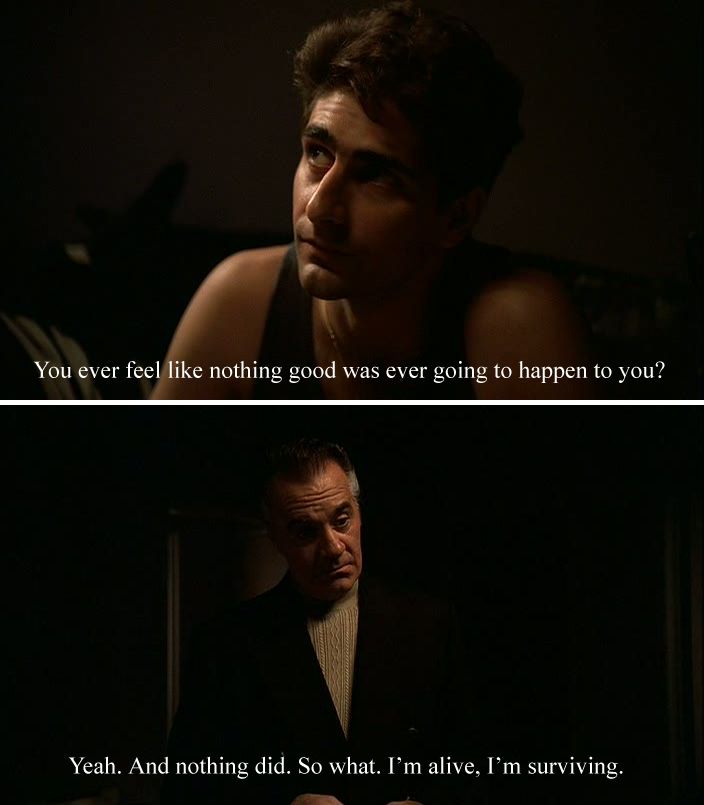
It’s the “nothing is ever enough” kind of person. The “I always need more” kind of person. The person who seems to be unable to hold onto anything you’ve offered. Who begs you to say something helpful or comforting one day, but then needs you to say it all over again the following day, and the next. And the next. It’s exhausting, isn’t it?
The person who can’t seem to find a way to use anything you say to them, anything you give them. To hold anything.
So how about, just for a moment, we walk in the shoes of a “bottomless pit?” How about we just peek at what that is like? We won’t stay there too long, because we’re going to want to shake those shoes off pretty quickly and breathe a sigh of relief that we don’t have to wear them all the time. However, let’s just give it a go.
Just to make it a little easier, I’m going to give this “bottomless pit” a name. How about we call her “Helen?” It just makes it simpler to give her a human face for a while. Our bottomless pit isn’t necessarily a woman. But let’s go with it, just for now.
But let’s go with it, just for now.
So, let’s put on Helen’s shoes.
The world, for Helen, is a really frightening place. It started out that way.
Helen’s mum wasn’t really cut out for mothering. She didn’t have anything to give to a baby apart from practical care—given in a no-nonsense kind of way—because she hadn’t had it herself.
So, inside, Helen’s mum was a bottomless pit too, hungry for what she hadn’t had, resentful of being required to give what she hadn’t had to someone else. In fact, truth be told, Helen’s mum was even a bit envious of her little girl. Why should Helen be the centre of the universe when she, the mother, had never been given that?
Helen’s mum lived life as if it owed her. She believed that Helen owed her, too. Helen was her second chance. Helen should give her everything that her own mother had been unable to give her. Note: unable. We’re not blaming anyone here. It was as it was. It’s as it is.
We’re just putting on another pair of shoes, remember.
Fairly early on in Helen’s life, therefore, Helen learned that she came second. She learned that she didn’t deserve. She learned that good things were not for her. She learned that life was not kind, or comforting, or soothing or giving. Rather, life was punishing, taking and begrudging. Moreover, life expected that she shouldn’t mind.
But something even harder came with that. Helen grew up unable to hold anything. One of the greatest of human pains there is. Helen grew up empty.
Let’s just imagine that for a moment. Some of us will already know what this means, because we already know what that’s like. It feels frightening. Joyless. It’s to be untouched by anything good, to be unable to remember it, or conjure up the feeling of it. Everything is fleeting and temporary. It goes in but it just falls right out again.
People who know it often refer to it as “the void.”
See, we can only hold onto things if we have been held. If our being mothered has included our being physically, emotionally or psychologically held. If we have felt and known that we were existing in another’s heart and mind. We only know we exist because we first discovered that we existed in the heart and mind of another.
If we have felt and known that we were existing in another’s heart and mind. We only know we exist because we first discovered that we existed in the heart and mind of another.
And if we haven’t had that, moments vanish. Others’ words vanish. At least, “good” moments and “good” words do. “Bad” moments stay because there’s no way to soothe them. And “bad” words stay because they are all we have known, so they are familiar and trusted.
Do you begin to see the pain of the “bottomless pit” yet?
Oh, it doesn’t end there. It gets worse. As an adult, Helen continues to feel like a hungry, needy child. Just like her mother was. She feels so bad about that, so ashamed, so inadequate. She hates and despises herself. She’s a horrible person for being so full of hurt and anger and resentment. And the worse she feels about herself, the more she tries to compensate by being “good.”
Helen usually cares for her mother, often lives with her longer than many daughters live with their mothers, or continues to live close by.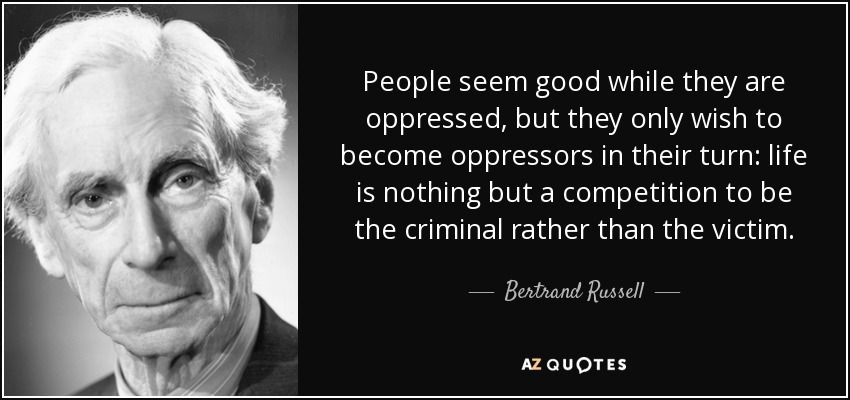 She tries hard to meet her every need, and resents it while believing that she is bad for resenting it. Neither mother nor daughter are happy in this arrangement—there is duty here, not love. Although both would insist on calling it love and both believe it is love, neither really know what this thing called love actually is.
She tries hard to meet her every need, and resents it while believing that she is bad for resenting it. Neither mother nor daughter are happy in this arrangement—there is duty here, not love. Although both would insist on calling it love and both believe it is love, neither really know what this thing called love actually is.
Now and then, Helen goes through periods of the darkest, most desolate, depression. She will catapult between anger and grief. She will cry for days. She will walk out. She will shout cruel things. Then she will be overcome by guilt and remorse. And shame. Oh, always the shame. And she tries even harder.
When it gets really bad, Helen will ask for help. She’s clearly in so much distress that others are eager to try to help her. People give her hugs, words of encouragement, practical offers of help. And Helen expresses her gratitude and appears to absorb it all and feel better. People feel gratified and content that their help has made a difference.
However, in Helen’s world, all it has actually been is a sticking plaster. It has helped temporarily. But the void—the bottomless pit—remains. Everything is just as hollow, empty, frightening and meaningless as before. She is still a “bad” person and she still hates herself.
It has helped temporarily. But the void—the bottomless pit—remains. Everything is just as hollow, empty, frightening and meaningless as before. She is still a “bad” person and she still hates herself.
She genuinely tries to do the things she has been advised to do. She reads the books. She writes love letters to herself. She says affirmations as if they are sacred, magic rituals that will bring about healing. She tries to love herself like everyone tells her to do. But always, there is the void, always the bottomless pit. Always the inability to hold it.
And so it gets even worse. People start to get angry with her. They tell her she is not trying. They bombard her with wise words which others have spoken or written. They tell her to snap out of it. Or to look to her vibration. To change her energy. They tell her she is attracting this.
Do you get yet what it’s like to be Helen, yet?
And do you know the only way it gets fixed? The only way? The way that someone who doesn’t know how to love themselves gets to be able to love themselves? It is by being given, over and over again, the unconditional love they didn’t have. That doesn’t mean depleting yourself. It doesn’t mean giving in a way that leaves you empty. However, it does mean not telling her to do what she simply cannot do—no matter how loudly and clearly and impatiently you tell her to do it.
That doesn’t mean depleting yourself. It doesn’t mean giving in a way that leaves you empty. However, it does mean not telling her to do what she simply cannot do—no matter how loudly and clearly and impatiently you tell her to do it.
And now do you see the challenge? Both for Helen, and also for you? Do you see why Helen chose—because, of course, she did choose—to bring this opportunity into this time/space reality for us all? Do you see what a strong soul Helen actually is? Do you see what she offers you?
It is the challenge of finding a way to love unconditionally. To give unconditionally. To find in yourself all the blocks to unconditional love which the difficult personality that Helen is forces you to discover.
This never was about Helen. This never was about the frustration of the bottomless pit. This was never about you learning wonderful techniques that you could offer to Helen in order to help her to be like you. It was always about you. And for that, you owe Helen enormous appreciation.
Helen’s already got this. She knew what she was doing. She has this. Her higher self is looking on, smiling, and nodding at the absolutely brilliant job she is doing of playing out her role. Her bottomless pit role.
Do you get it now? Even a little? The enormity of this gift?
The challenge is unconditional love. The opportunity is unconditional love. The journey is back to unconditional love. Do you catch the energy of that, the excitement of it, the power of it? Don’t you just love the way this all works?
Oh, and if you happen to be Helen, thank you! There is much love and appreciation for you here. We stand in awe.
Relephant Read:
8 Signs of Emotional Dysfunction which Disturb Inner Peace.
Author: Janny Juddly
Editor: Catherine Monkman
Photo: Francisca Ulloa/Flickr
10 reasons why you don't succeed
We have all experienced failure at one time or another. There can be many reasons for this, but to be honest, in most cases they all boil down to one thing: when life offers us some kind of opportunity, we tend to avoid the pressure and difficulties that come with moving forward. It is much easier to accept defeat right away: you never know what awaits you on the way to your dream?
There can be many reasons for this, but to be honest, in most cases they all boil down to one thing: when life offers us some kind of opportunity, we tend to avoid the pressure and difficulties that come with moving forward. It is much easier to accept defeat right away: you never know what awaits you on the way to your dream?
And here are the top 10 reasons for failure, which are whole strategies for avoiding self-improvement. Following these strategies, we are bound to fail. Read and cry.
1. You are afraid to stand out
Any society keeps an eye on each of its members so that they do not show excessive self-confidence.
Ralph Waldo Emerson
American essayist, poet and philosopher
People don't like it when others change or do things that make them feel uncomfortable. When you challenge yourself on the path to your ideal, others perceive it as a threat to their inner balance. The success of others makes them reflect on their own failures and wasted potential. This is quite unpleasant, so most people will react to your actions with aggression.
This is quite unpleasant, so most people will react to your actions with aggression.
This is the truth of life. If you want to achieve something outstanding, something that sets you apart from everyone else, you have to understand that you are different and learn to live with it.
People will call you weird, crazy, selfish, arrogant, irresponsible, obnoxious, stupid, rude, superficial, insecure, fat, and ugly. They will try to “bring you back to reality”, to make you behave like a “normal” person. Perhaps those closest to you will be the most cruel to you. If you are not confident enough in your ideas and desires, you will not get far.
2. You lack persistence
In 2009, Karl Marlantes finally published Matterhorn, a novel based on his own memories of the Vietnam War. The book became a bestseller. The New York Times called it "one of the most profound and impressive writings about the war". According to Mark Bowden, author of Black Hawk Down, The Matterhorn is the greatest book about the Vietnam War.
How did Marlantes achieve such success? For 35 years he fought to have his book published. This is more than half of his entire life. He rewrote the manuscript six times. In the first two decades after the book was written, publishers rejected the novel as soon as they read it.
There are many such stories. Remember Walt Disney, who was considered untalented. For twenty years, he persuaded Pamela Travers to agree to a film adaptation of her book.
Most of us give up too quickly on the way to our cherished goal. But almost every success story is also a story of perseverance and struggle. Nothing really worthwhile comes easy.
3. You lack modesty
Just don't confuse modesty with shyness. Many people, having barely achieved something, begin to consider themselves experts in their field. Modesty, on the other hand, means understanding that you know far from everything.
Really great people know they don't know anything.
It is interesting that people whose achievements are not something supernatural are most fond of talking about their success.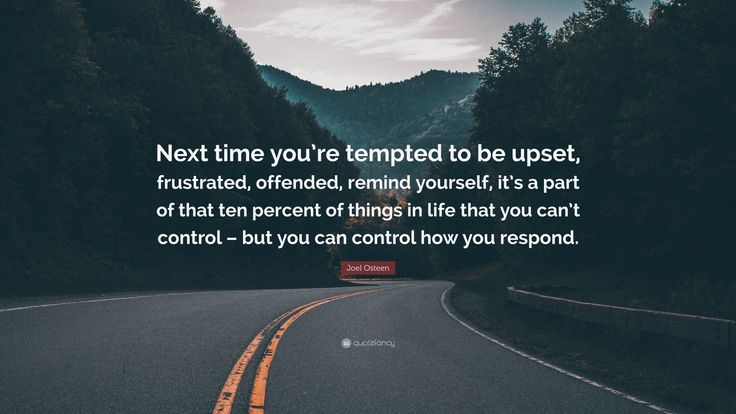 It is they who often become coaches and begin to teach everyone and everything how to achieve high results in their business.
It is they who often become coaches and begin to teach everyone and everything how to achieve high results in their business.
Conversely, self-made people who have made real breakthroughs in their industry usually don't talk much about how they got there. They either downplay their accomplishments or simply don't mention them. Instead, such people admit that they make mistakes, openly talk about their weaknesses and what they have yet to learn.
4. You fail to make connections and build strong relationships
In today's world, the ability to communicate with people is extremely important. There are even separate trainings on mastering networking. In some industries, without the art of networking, it is extremely difficult to move forward. In addition, you just need to be able to ask people for help. However, sometimes our fear, self-doubt or, conversely, arrogance interferes with our communication with other people and makes us miss valuable opportunities that could change our whole life.
66% of hired employees know someone from the company they will work for. But even outside of business communication, the desire for isolation can nullify all your efforts. In addition, it often leads to depression. The ability to build strong romantic relationships is also closely related to the ability to meet the right people and interact productively with them.
5. You'd rather argue than take someone's advice
Wanting to prove you're right instead of improving yourself is a guaranteed path to failure. To achieve success, you need to follow a cycle in which feedback is necessarily present.
Try something → get feedback on the results → extract useful information from it → try something new.
People who would rather die than reconsider often break this chain and do not accept feedback. Therefore, they will never change.
This does not mean that we should listen to all the advice that is given to us. The point is to take into account the information that comes to us as feedback, regardless of whether we consider it useful or not. You should not strive at all costs to defend your position, only to look like you were right all this time.
You should not strive at all costs to defend your position, only to look like you were right all this time.
People who suffer from this problem are usually very intelligent and extremely insecure. This is a bad combination. The smarter a person is, the longer he will rationalize his failures and find excuses for himself. He uses all his intelligence to build a defense mechanism for his fragile ego.
6. You are distracted too much
Check your VKontakte news feed, Facebook*, check your inbox, Facebook* again, VKontakte again, what a cool comic, share it on Facebook*, check email again, reply to message "VKontakte", wow, pictures with cats, share them too, repeat from the very beginning.
Do you recognize yourself? It's not something worth wasting your time on, is it?
7. You don't take responsibility for what happens to you
Do you constantly find excuses for yourself? So you won't move forward. To solve problems, you need to take control of your life. But you cannot take control of life unless you take responsibility for it. Therefore, if you do not take responsibility, you will fail.
But you cannot take control of life unless you take responsibility for it. Therefore, if you do not take responsibility, you will fail.
Yes, it is very tempting to throw the blame for what is happening on external factors, to insist that you could not do anything, that you are not to blame, he himself came. But maybe it's still worth giving yourself an imaginary slap in the face and soberly assess your contribution to the current situation? The sooner you do this, the sooner you can fix it.
8. You don't believe that success is possible
To win, you have to believe in the possibility of winning. It has nothing to do with self-belief, and there is nothing supernatural about it. Your subconscious ideas about your capabilities affect your real performance.
For example, research has shown that athletes who have an untrue but positive idea of their abilities performed better than athletes with a more realistic or pessimistic attitude.
In addition, people who overestimate their capabilities are much easier to climb.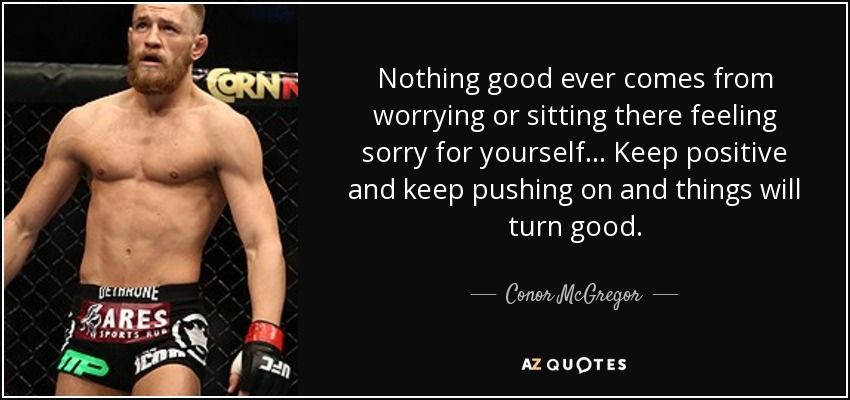 It's easier for them to get started. And when you learn from your mistakes, you will eventually succeed. So sometimes a little illusion can serve you well.
It's easier for them to get started. And when you learn from your mistakes, you will eventually succeed. So sometimes a little illusion can serve you well.
9. You are afraid of being indifferent
Many people catch the virus of indifference. Nothing really inspires them. Such people do not dare to fully devote themselves to any business, project or goal. Many of them give up very quickly. Others simply lose interest. And many do not have enough strength to even start.
Chronic indifference is an insidious defense mechanism. It undermines the motivation and inspiration needed to get rid of it. So a person gets into a vicious circle.
At an unconscious level, many people are afraid to take on something with all their might, because they understand that they can fail. This failure can cause them to have a flood of thoughts for which their psyche is not at all prepared: questions about their own worth, competence, the question of whether you are worthy of love, and so on.
Usually people who use this mechanism get rid of it only when a new emotionally intense situation occurs in their life, which they manage to cope with.
10. Deep down you think that you don't deserve what you want
Moving up, we have come to the main reason for failure, which is often hidden behind the above. This is the certainty that you are not worthy of what you would like to receive.
Many of us have suppressed our most unpleasant feelings and ideas about ourselves, but this has not made them go away. These ideas evolved in different ways: someone was bullied at school, someone was constantly told by teachers or parents that he would not achieve anything in life, someone was not loved by their peers for their abilities. All this leaves an imprint that is difficult to get rid of. As a result, the very thought of achieving high results often makes us uncomfortable.
If we feel that something is not rightfully ours, we always find a way to get rid of it.

The disadvantages and advantages of a high position make some feel like kings and others feel like cheaters. Sometimes, as we approach success, a familiar inner voice begins to speak within us, feeding our fears and self-doubt until we destroy everything we have achieved. It could be a relationship with the best person we've ever met, a dream job we're hesitant to take on, a unique creative opportunity we trade in for more practical pursuits.
Whatever it is, hidden fears come to the surface and find a way to destroy what you are so eager for. More precisely, they force you to destroy it.
This is the harshest truth behind our failures. It's all about yourself. There is no one else in this equation.
And as long as you deny it, your fear will not go away. It will be an invisible barrier separating you from happiness. You will constantly fight against it, but you will not be able to break it. There is a way out, but you have to be prepared for pain and suffering. Otherwise, you will not be able to face what is preventing you from achieving your goals. You will face the same problems again and again. Time after time until you are ready to accept that they exist.
Otherwise, you will not be able to face what is preventing you from achieving your goals. You will face the same problems again and again. Time after time until you are ready to accept that they exist.
Read also 🧐
- What I didn't know about success at 25 but know at 50: tips from an entrepreneur
- 12 ways to change lives for those who have absolutely no strength
- 30 things that start a positive change
*Activities of Meta Platforms Inc. and its social networks Facebook and Instagram are prohibited in the territory of the Russian Federation.
I don't want anything. Nothing at all. What to do with it?
What to do: learn to relax and distribute internal resources.
One of the most popular causes of apathy is not laziness, as people like to talk about it, but chronic fatigue and overwork, which we simply stopped paying attention to. If you are accustomed to regularly not getting enough sleep (that is, sleeping less than seven hours a day), always being in touch at work, not taking a vacation for a long time (or spending it, in fact, not resting, but pleasing others), you hardly move, then you are overtired. long ago. And the lack of rest deprives our brain of critical thinking and does not allow us to see things in perspective. Indeed, how do you find motivation to move on if you do not give yourself any regular encouragement? Just rest is important for our motivation no less than the usual salary, gifts to ourselves, delicious food and a comfortable standard of living.
long ago. And the lack of rest deprives our brain of critical thinking and does not allow us to see things in perspective. Indeed, how do you find motivation to move on if you do not give yourself any regular encouragement? Just rest is important for our motivation no less than the usual salary, gifts to ourselves, delicious food and a comfortable standard of living.
Advertising on RBC www.adv.rbc.ru
Our upbringing tends to glorify workaholism, and many of us were not taught to rest properly at all: rest is often associated with loss of control and missed opportunities to become better and do more. Rest, like work, often needs to be learned in adulthood - and any learning should proceed gradually. To prevent the changes from coming too abruptly, try dividing your long-awaited vacation plan into weeks.
In the first week, mainly restore sleep - by all means regain the necessary seven hours of sleep (and even more) at the expense of other, less urgent matters. For an experiment, you can move old hobbies, communication and the habit of starting the day by reading mail and instant messengers. Track your mood after this week - enough sleep usually brings back an optimistic outlook on things.
For an experiment, you can move old hobbies, communication and the habit of starting the day by reading mail and instant messengers. Track your mood after this week - enough sleep usually brings back an optimistic outlook on things.
Next week, while maintaining your new sleep habit, limit your working time - create a routine and hours within yourself when you are not distracted by work issues (but postpone them until the actual working day).
In the third week, regulate the weekend: a clear working week and two days of rest, in which you do only things that please you (of course, if possible).
In the fourth week, calculate how much time you have, if sleep or work is taken out of brackets, and what this time is spent on: how much time do you spend on the road, how much for everyday life, how much for communication, education, helping loved ones. The numbers for these three weeks will clearly show you what the cause of constant overwork is, while fixed sleep and work hours will help you prioritize fairly and be realistic about your own resources.
© Toa Heftiba/Unsplash
What to do: take the necessary time for yourself and not measure life by efficiency.
This paragraph is similar to the previous one, but does not duplicate it. Very often, our diary is full of “favorite” things and activities in which we will definitely achieve success, rejoice in victories and live life to the fullest: morning starts with a run, the day continues at our favorite job, we spend the evening with our family, watch new movies at night, read important books and chatting with friends. In between, we go to meetings, go out to dinner with colleagues, visit our parents and go on business trips, take lessons at a driving school and learn foreign languages.
Such a life may look good in a diary and instagram, but, most likely, it is psychologically exhausting. You can’t be on top 24/7, read only useful books, have time to help everyone, listen to audio courses in traffic, play educational games with children and cook the best dinners in the world. Or rather, you can - for a while, until you stop wanting to do anything. Even favorite things in a tightly packed calendar cease to please, and improvisation and time for yourself remain the only option.
Or rather, you can - for a while, until you stop wanting to do anything. Even favorite things in a tightly packed calendar cease to please, and improvisation and time for yourself remain the only option.
Here, as in the first paragraph, it is worth acting progressively. According to the priority list, free the next week from business, without doing which you will definitely not let anyone down. See how much free time you have and if you have enough of it. Do not plan anything and act according to the situation. If you want to take a walk during these couple of hours, feel free to go for fresh air. Take care of yourself please. Call friends - yes. Read a book, of course. The main thing - do not plan to read a book, call friends and go for a walk a few hours before, give yourself time to feel this natural impulse to a specific, rather than familiar activity. And most importantly - if there are no desires, reward yourself with the luxury of just lying and spitting at the ceiling. Perhaps it is these half-hours over the past year that will bring you the most joy and you will realize that you have greatly underestimated the restorative power of the most banal idleness.
Perhaps it is these half-hours over the past year that will bring you the most joy and you will realize that you have greatly underestimated the restorative power of the most banal idleness.
© Christopher Jolly/Unsplash
What to do: distance yourself from difficult people or clearly draw the boundaries of your interests.
It's very hard to stay motivated when your familiar environment doesn't inspire you. We underestimate the importance of the support of loved ones, the mood of the team and the attention of acquaintances in our daily life: if our efforts are taken for granted, and people around us do not wait for praise, even our favorite duties are very difficult to fulfill. That is why, if in your life the issue of lack of freedom (that is, points 1 and 2) is resolved, you need to pay attention to the people with whom you spend the most time. To begin with, analyze how you feel at home, whether you want to return there and what emotions you most often experience with household members. Do you live alone or with someone? How and when did this situation come about? Do they cheer you up, do the closest people take care of you? Do they find good in your daily life? Are your deeds and achievements appreciated? Do they manage to cheer you up in a difficult situation?
Do you live alone or with someone? How and when did this situation come about? Do they cheer you up, do the closest people take care of you? Do they find good in your daily life? Are your deeds and achievements appreciated? Do they manage to cheer you up in a difficult situation?
Very often people who live together lose their boundaries and begin to take the second person for granted, be it a daughter, mother, wife or girlfriend, and it is very unpleasant to be in such a role of function. Track, after communicating with which people you often feel worse and whether this communication is regular.
How is your work environment? Do you have an established team or does everyone pull the blanket over themselves? Do you have the right to be wrong? Think about the people you are surrounded by in general and whether they give you the necessary mood, inspiration, energy. If you have not been interested in your circle for a long time, if you are tired in a couple or in a work team, but these relationships determine a third or half of your time, it is not at all surprising that at some point you will not want anything but loneliness and doing nothing.
What to do: get an outsider's opinion and find new reasons to move on.
The daily repetition of the same actions sharpens our motivation, even if we do what we love and communicate with nice people. “I don’t want anything” is very often a consequence of the fact that you are confused about where specific relationships, deeds and people are taking you, or a true feeling that past motivations have stopped working. This often happens when we outgrow the goals imposed from the outside. For example, we work at a job that our parents wanted for us, and not ourselves. Or one that was agreed to in a hurry a few years ago. We continue a relationship in which nothing interesting happens for a long time. We solve material issues and postpone the daily pleasures of life. We have a strategic plan that does not inspire, and we execute it from month to month. Alone we pull a big family business or several family members, while not receiving any pleasure or gratitude.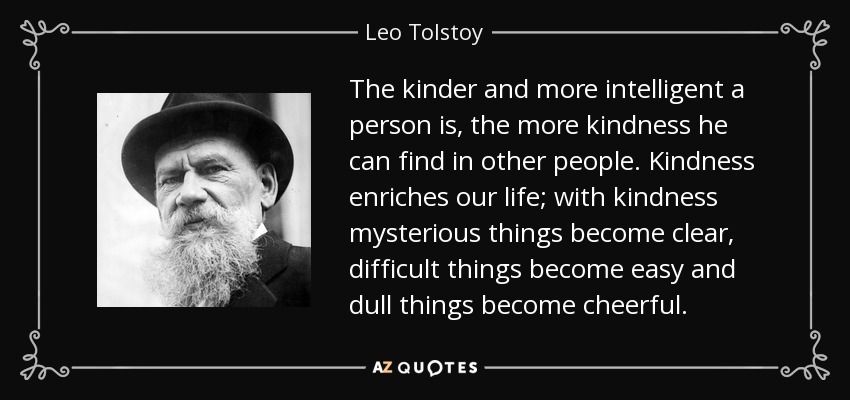 Motivation is gone, your eye is blurred, your choice seems to be wrong, and you are not yet able to make a new one - there is no necessary distance to separate yourself from life's circumstances.
Motivation is gone, your eye is blurred, your choice seems to be wrong, and you are not yet able to make a new one - there is no necessary distance to separate yourself from life's circumstances.
In this situation, there is a danger of accepting someone else's point of view as one's own. Instead of advice, ask people you love and trust for an outsider's perspective. Let them describe your best qualities and great achievements, and voice your progress over the past few years. Let them tell you what your strengths attract the most, highlight your obvious features, voice important stages of your journey. It is not necessary to take all the comments on a pencil, but in case of a long confusion, a look from the outside (especially if several people speak frankly with you) will help restore the lost ground under your feet and a sense of your own value.
Don't be afraid to admit that your old goals no longer appeal to you. It's okay to say "I don't want my own business, I want to work for someone" or "I need to get out of this relationship" or "I chose the wrong job" or "This place doesn't suit me. " pocket." By shifting your focus to your strengths, which others recognize, you are likely to find momentum to take action in a new direction. And even observing yourself instead of denying dissatisfaction will be an important step towards something new.
" pocket." By shifting your focus to your strengths, which others recognize, you are likely to find momentum to take action in a new direction. And even observing yourself instead of denying dissatisfaction will be an important step towards something new.
© jwlez/Unsplash
What to do: learn to recognize daily victories and reward yourself for your efforts.
A very common educational problem - praising for grades and underestimating efforts - has a bad effect on the well-being and self-perception of an adult. It seems that things are done, the checkboxes in the important list are ticked, but you are really only concerned about the stress of the next day. You fail to exhale and internally pat yourself on the shoulder, you downplay your merits and focus on the thanks and comments of others (and people are not so inclined to praise and cheer each other up at the right moment), all the results seem insufficient. The perspective is distorted: each new day brings only a new list of things to do, and no one will say thank you for it. The way out is to learn to praise yourself for little things. It will seem very unnatural at first, but you need to learn to notice your achievements yourself and stop the inner critic, if not the tyrant.
The way out is to learn to praise yourself for little things. It will seem very unnatural at first, but you need to learn to notice your achievements yourself and stop the inner critic, if not the tyrant.
Think about how many things you do, relatively speaking, according to the list, and how much - automatically. Does the fact that you do something automatically mean that it's unimportant? Put things in order, cook a delicious breakfast, congratulate friends on the holidays, do exercises, take care of yourself and others, check your child’s homework, visit your parents, water the flowers and feed the cat - yes, it is these trifles that often eat up so much time. Add to that the day-to-day activities at work and the amount of new knowledge and contacts you get each day just by doing your job well.
Often, this number of tasks is accompanied by studies, helping others, raising children, charity, organizing events - and this is a truly huge contribution that should be noticed and reckoned with the efforts spent. Schedule your week according to the results of the big and seemingly insignificant things done, remember everything that would not have been done without you, and everyone you helped. Such a list will clearly show how often you should recognize your merits and smile at your own reflection for your great efforts.
Schedule your week according to the results of the big and seemingly insignificant things done, remember everything that would not have been done without you, and everyone you helped. Such a list will clearly show how often you should recognize your merits and smile at your own reflection for your great efforts.
What to do: stop accusations of lack of desire.
Childless people are told that they need to have children. People who are not in a relationship are taught that they need a relationship. People with modest incomes are told that they should earn more. Adults are told that it is necessary to protect youth. Young - that you need to grow up as soon as possible. Desires are imposed on us all around, which have very little to do with our characters, temperaments and plans. The question "What do you want?" sounds in the store, and at the appointment with a therapist, and at a job interview, and in a conversation with friends. Or you may want nothing at all. Of course, temporarily - a person cannot do otherwise. But it is perfectly normal not to want anything at this moment in time, not to suffer from a feeling of inferiority and not to justify it to anyone.
Of course, temporarily - a person cannot do otherwise. But it is perfectly normal not to want anything at this moment in time, not to suffer from a feeling of inferiority and not to justify it to anyone.
Remember all the desires imposed on you and see if you are living them in the present. Is much of it dictated by your motivation, or is most of it a compromise between your desire and someone else's? Have you ever allowed yourself to want nothing at all? Try to focus on the small events of each day and track your emotions towards them. Don't make long term plans that won't take your breath away. Try saying “no” to non-essential things for at least a few weeks. Protect yourself from third-party influence, including unsolicited well-meaning advice. Settle for enough and don't get distracted from the main task - do not blame yourself for not wanting something more. Notice what your daily comfort is impossible without, and what you can give up. See how many things, contacts, cases describe a life that is convenient for you.
